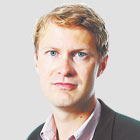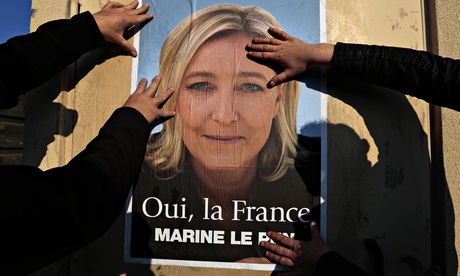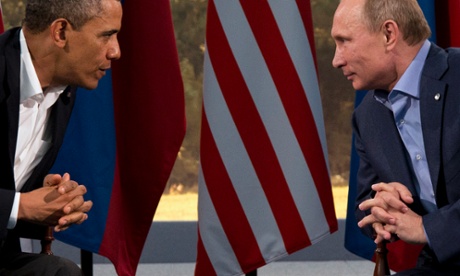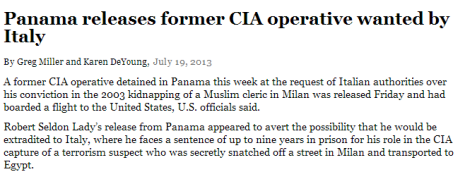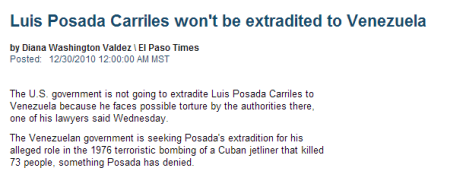Mark Landler in The Times of India
President Barack Obama believes that Saudi Arabia, one of America's most important allies in the Middle East, needs to learn how to "share" the region with its arch enemy, Iran, and that both countries are guilty of fuelling proxy wars in Syria, Iraq and Yemen.
In a series of interviews with the magazine Atlantic published on Thursday, Obama said a number of US allies in the Persian Gulf — as well as in Europe — were "free riders," eager to drag the United States into grinding sectarian conflicts that sometimes had little to do with US interests. He showed little sympathy for the Saudis, who have been threatened by the nuclear deal Obama reached with Iran.
The Saudis, Obama told Jeffrey Goldberg, the magazine's national correspondent, "need to find an effective way to share the neighbourhood and institute some sort of cold peace". Reflexively backing them against Iran, the president said, "would mean that we have to start coming in and using our military power to settle scores. And that would be in the interest neither of the United States nor of the Middle East."
Obama's frustration with much of the Arab world is not new, but rarely has he been so blunt about it. He placed his comments in the context of his broader struggle to extract the United States from the bloody morass of the Middle East so that the nation can focus on more promising, faster-growing parts of the world, like Asia and Latin America.
"If we're not talking to them," he said, referring to young people in those places, "because the only thing we're doing is figuring out how to destroy or cordon off or control the malicious, nihilistic, violent parts of humanity, then we're missing the boat."
Obama also said his support of the Nato military intervention in Libya had been a "mistake," driven in part by his erroneous belief that Britain and France would bear more of the burden of the operation. He defended his refusal not to enforce his own red line against Syria's president, Bashar Assad, even though Vice-President Joe Biden argued internally, the magazine reported, that "big nations don't bluff."
The president disputed criticism that he should have done more to resist the aggression of President Vladimir Putin of Russia in Ukraine. As a neighbour of Russia, Obama said, Ukraine was always going to matter more to Putin than to the United States. This meant that in any military confrontation between Moscow and the West, Russia was going to maintain "escalatory dominance" over its former satellite state.
"The fact is that Ukraine, which is a non-Nato country, is going to be vulnerable to military domination by Russia no matter what we do," he said. "This is an example of where we have to be very clear about what our core interests are and what we are willing to go to war for."
Obama, who has spoken regularly to Goldberg about Israel and Iran, granted him extraordinary access. The portrait that emerges from the interviews is of a president openly contemptuous of Washington's foreign-policy establishment, which he said was obsessed with preserving presidential credibility, even at the cost of blundering into ill-advised military adventures.
"There's a playbook in Washington that presidents are supposed to follow," Obama said. "And the playbook prescribes responses to different events, and these responses tend to be militarized responses." This consensus, the president continued, can lead to bad decisions. "In the midst of an international challenge like Syria," he said, "you are judged harshly if you don't follow the playbook, even if there are good reasons."
Although Obama's tone was introspective, he engaged in little second-guessing. He dismissed the argument that his failure to enforce the red line in Syria, or his broader reticence about using military force, had emboldened Russia. Putin, he noted, invaded Georgia in 2008 during the presidency of George W Bush, even though the United States had more than 100,000 troops deployed in Iraq.
Similarly, the president pushed back on the suggestion that he had not been firm enough in challenging China's aggression in the South China Sea, where it is building military installations on reefs and islands, some of which are claimed by the Philippines and other neighbours.
"I've been very explicit in saying that we have more to fear from a weakened, threatened China than a successful, rising China," Obama said.
The president refused to box himself in as a foreign-policy thinker.
"I suppose you could call me a realist in believing we can't, at any given moment, relieve all the world's misery," he said.
But he went on to describe himself as an internationalist and an idealist. Above all, Obama appeared weary of the constant demands and expectations placed on the United States.
"Free riders aggravate me," he said.
He put France and Britain in that category, at least as far as the Libya operation was concerned. Prime Minister David Cameron of Britain, he said, became distracted by other issues, while President Nicolas Sarkozy of France "wanted to trumpet the flights he was taking in the air campaign, despite the fact that we had wiped out all the air defences."
Only on the threat posed by the Islamic State did Obama express some misgivings. He likened the extremist group to the Joker in "The Dark Knight," the 2008 Batman movie. The Middle East, Obama said, was like Gotham, a corrupt metropolis controlled by a cartel of thugs.
"Then the Joker comes in and lights the whole city on fire," Obama said. "ISIL is the Joker," he added, using an acronym for the Islamic State.
Still, Obama acknowledged that immediately after the terrorist attacks in Paris and San Bernardino, California, he did not adequately reassure Americans that he understood the threat, and was confronting it.
"Every president has his strengths and weaknesses," he said. "And there is no doubt that there are times where I have not been attentive enough to feelings and emotions and politics in communicating what we're doing and how we're doing it."
By Rebecca Kesby
In the last 10 years Russia has imprisoned nearly three million entrepreneurs, many unjustly. This statistic comes from a new ombudsman for business rights, Boris Titov, who says it is "hard to find another social group persecuted on such a large scale". How has this come about?
Businessmen have complained for years that people have been able to frame commercial rivals - by paying corrupt police officers to plant evidence and make arrests to order. But only now are they being taken seriously.
More and more well-heeled entrepreneurs have been joining, even leading street protests in recent months, with reform of the courts one of their main demands.
Perhaps those protests influenced President Putin's decision last month to create a post of "ombudsman for business rights" - but he might also have been persuaded by the $84bn in capital that left Russia last year, a record amount. Russians are investing overseas because they fear for the safety of their businesses at home.
"The economy will be completely destroyed," says entrepreneur Vladimir Perevezin. "Because businessmen are not safe in our country - anyone could be sent to jail."
Perevezin knows what it's like. He was imprisoned for more than seven years after being framed, he says, for money laundering.
His friend Valery Gaiduk was also imprisoned for three years, convicted of fraud. "I'm 100% sure that a rival paid to have me arrested," he says. He had been co-owner of a successful dental practice, but he claims police officers took a $500,000 bribe to frame him.
At the root of the problem is the criminal justice system itself. Statistically, once officially accused of a crime in Russia, there is little chance of proving your innocence. Less than 1% of all criminal cases that make it to court result in a not guilty verdict or acquittal - and that figure comes from Prime Minister Dmitry Medvedev.
Critics say that in practice, if not in theory, courts operate on an assumption of guilt. The prosecution takes the word of the police, and the judge takes the word of the prosecution - no matter how unconvincing the evidence may be.
"If a person ends up in a police cell as a suspect - he will find himself in court no matter what, and the court will find him guilty. That's guaranteed," says Marat Khisamutdinov, a former police officer.
It's not surprising then that, off the record, many Muscovites are prepared to admit paying bribes to police officers when arrested - even if they're innocent.
"It's best to solve the problem as soon as possible, at the police station," Khisamutdinov says.
"You only really need to pay the lowest arresting police officers. The rest of the machine works automatically."
It's much more expensive, by all accounts, to buy your release once the wheels of justice have begun to turn. Valery Gaiduk says he was offered freedom for $300,000, but did not pay as he was unsure the deal would be honoured.
One of the few judges prepared to talk openly about the failings of Russian courts is Sergei Zlobin, who resigned as head of the Volgograd regional criminal board four months ago. His portrait of life as a modern Russian judge is extraordinary.
"Often there are huge gaps in the evidence," Zlobin says.
"Investigators make serious mistakes, but the system is such that even these mistakes are used as evidence against the defendant, and the guilty verdict must be issued anyway - otherwise the judge will face problems."
Zlobin says that in the thousands of cases he heard in the 15 years he was a judge, he only ever issued seven not guilty verdicts - and five of them were later overturned. Issuing a not guilty verdict, he says, was not only a "waste of time" it was risky.
Judges come under all kinds of pressure from the Federal Security Services, the prosecutors and the chairman of the court not to acquit defendants, he says, including blackmail. The result? Many innocent people are locked up.
Zlobin and his family have received threats and abusive messages since his resignation. He knows it's risky to speak openly, but says his conscience compels him to do so.
"Sometimes I just had to follow the instructions from above. Now, with hindsight, I understand that what I was doing was wrong, and moreover, it was illegal... and I deeply regret it."
Several judges and lawyers told me that the system acts to protect itself, rather than the letter of the law.
Asked if he had ever accepted a bribe to arrest someone on false charges, former police officer Marat Khisamutdinov refuses to answer.
Would an officer would feel guilty about framing an innocent person? "No" he answered. "You don't know him, you'll never see him again, and you get a financial reward - so why do you care?"
The business community will be watching Boris Titov's next move very closely.
He has hinted at a possible amnesty for prisoners serving time for "economic crimes", if it is their first offence.
This could affect more than 100,000 businessmen.
It would not, however, have any implications for the most famous jailed businessmen - Mikhail Khodorkovsky (once Russia's richest man) and his partner Platon Lebedev - as both have been convicted more than once.
Rebecca Kesby's Assignment, Russia: Waiting for Justice, will be broadcast on the BBC World Service on Thursday 5 July. Download a podcast or browse the Assignment archive.
